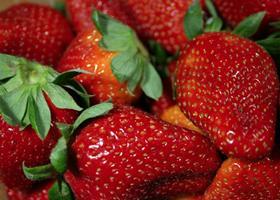
The price of soft fruit could skyrocket if the government doesn’t take action to address an impending labour crisis, a major new report has claimed.
The study, commissioned by British Summer Fruits and written by John Pelham of Andersons, charts the current trajectory of the industry over the next three years and possible scenarios if growers cannot find sufficient seasonal labour. It has been circulated to all the major supermarkets, civil servants, secretaries of state at Defra and the Home Office as well as extensively in the national media.
The removal of the Seasonal Agricultural Workers’ Scheme, Brexit uncertainty driving staff away and cost increases linked to the National Living Wage have made labour a major headache for UK growers, some of whom have already reported difficulties in procuring enough staff for this season. Those issues are expected to deepen in the build up to Britain’s exit from the EU in 2019.
Laying bare the full extent of the contribution made by migrant seasonal workers, the report states that nearly 29,000 seasonal workers were employed in UK soft-fruit production in 2015 – a figure that is projected to rise to over 31,000 by 2020.
British growers want to see a seasonal worker permit scheme introduced for horticulture, with the details agreed by next spring and the scheme in place by September 2018, according to Laurence Olins, chairman of British Summer Fruits. “We already have some issues this season,” Olins said. “The devaluation of sterling has had a massive impact, with the euro wage rate now higher than ours. We are struggling to compete for labour, and then there’s a feeling of xenophobia as well. Based on our experience this year, next season could be difficult, though not impossible, but we can’t afford to wait until it’s too late.'
Rising production
UK soft-fruit production has risen dramatically over the last two decades, up 150 per cent in strawberries to 168,000 tonnes and 123 per cent in raspberries to 29,000t. Production of other berries has also increased by 316 per cent to 50,000t.
All things being equal, UK growers hope to increase production by a further 20,000t (14.5 per cent) between 2015 and 2020.
However, should the labour needs of the industry not be met, it could result in growers quitting, the reduction of the soft-fruit production area and greater imports. That will have an inevitable knock-on effect on the prices paid by both supermarkets and consumers, the report warns.
In 2016, for example, a typical 400g punnet of strawberries cost £2 in supermarkets, with the retailer taking a gross margin of 32.5 per cent. However the price of imported fruit in the main UK season is £2.75 at the same margin.
For a 200g punnet of raspberries, the retail price of £2 would rise to £3 for imported, representing a 50 per cent cost inflation for consumers.
Soft fruit represents 22 per cent of all UK consumers’ fruit purchases, meaning national goals to increase fruit and vegetable consumption are likely to be severely dented.
There would also be a knock-on effect in terms of reduced taxation income for the government, as well as income from National Insurance from both employers and employees, if the industry contracts.
The report also touches on the potential of robotic pickers to replace humans, and while there are prototypes currently in trials, extensive commercial use is unlikely before 2020.
Cautious optimism
Olins said he was encouraged by recent comments from new Defra secretary of state Michael Gove, who said that the economy is the priority for the new government – and economic factors are central to the Andersons report.



